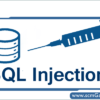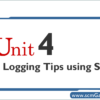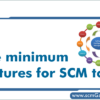Testing Tools in 2024
Here’s a breakdown of some of the top testing tools in 2024, categorized by their purpose: Automation Testing API Testing Performance Testing Security Testing Test Management Selecting the right tool…
Read more »Testing and QA tools in 2024
The world of testing and QA tools is constantly evolving, and 2024 promises even more exciting advancements. Here’s a glimpse into some key trends and popular tools: Top trends in…
Read more »Accessibility Testing Tools: Making the Web More Inclusive
Have you ever visited a website or web application and struggled to navigate or access its content? If so, you’re not alone. For many people with disabilities, using the internet…
Read more »List of Best Continuous Security Testing Tools
The following are the best continuous security testing (CST) tools: These are just a few of the many CST tools available. The best tool for your needs will depend on…
Read more »A/B Testing Tools
Are you tired of guessing which version of your website or app will perform better? Look no further than A/B testing tools! These helpful tools allow you to compare two…
Read more »Acceptance Testing Tools: A Comprehensive Guide
Are you tired of the endless cycle of testing and debugging your software? Do you want to streamline your QA process and ensure that your code is error-free before it’s…
Read more »Integration Testing Tools: The Ultimate Guide
Hey there! Are you tired of manually testing your software applications and want to speed up your testing process? Look no further than integration testing tools! In this article, we…
Read more »Usability Testing Tools: A Comprehensive Guide
Usability testing is a crucial part of the user experience design process. It helps designers understand how users interact with a product and identify any usability issues that may be…
Read more »Mobile Testing Tools: The Ultimate Guide
Are you tired of manually testing your mobile app? Do you want to improve your testing process and ensure a better user experience? Look no further! In this guide, we…
Read more »Browser Testing Tools: Making Your Life Easier
Are you tired of manually testing your website on different browsers and platforms? Do you want to ensure that your website looks and functions perfectly on all devices? If yes,…
Read more »API Testing Tools: Revolutionizing Software Development
Are you tired of manually testing APIs and wasting hours of your precious time? Say no more! With the advent of API testing tools, testing APIs has become a breeze….
Read more »Load Testing Tools: A Comprehensive Guide
Are you looking for ways to test the performance and scalability of your website or application? Then you need to consider load testing. Load testing is a critical process that…
Read more »Testing Tools: A Comprehensive Guide to Enhancing Your Software Development
Are you tired of constantly encountering bugs and errors in your software development process? Do you wish there was a way to streamline your testing process and ensure that your…
Read more »Complete guide of Selenium certification courses, tutorials & training
What is Selenium Selenium is an open-source, free automated testing toolkit for web applications that works with various platforms and browsers. It resembles HP QuickTest Pro considerably (QTP, currently UFT)….
Read more »What is Testlink and How it works? An Overview and Its Use Cases
History & Origin of Testlink TestLink was created by Chad Rosen, a software developer for Good Technology in the early 2000s. Rosen came up with the idea of creating a…
Read more »Top 50 Unit testing interview questions and answers
1) What is smoking? In unit testing, we use mocking. An object you want to test may have other complex object dependencies. You replace the other objects with mocks simulating…
Read more »List of Top DevOps Tools For SAP and ABAP
AbapGit SAP Transport Packages IKAN ALM Solman SAP Netweaver Qunit Opa5 SAPUI5 Robotic Process Automation – RPA
Read more »Tools for Java test automation by Daniel Wildt
Tools for Java test automation by Daniel Wildt Tools for Java test automation by Daniel Wildt
Read more »
SQL Injection: How to check or test for vulnerabilities
SQJ Injection There are a number of ways of testing an application for vulnerabilities such as SQL Injection. The tests break down into three different methodologies: Blind Injection: MySQL example:…
Read more »
JUnit 4 Test Logging Tips using SLF4J
When writing JUnit tests developers often add log statements that can help provide information on test failures. During the initial attempt to find a failure a simple System.out.println() statement is…
Read more »
What are the minimum features for SCM tools? – SCM Tools Essential Features
SCM Tools
The minimum features for SCM tools are closely related to the task of handling the different product deliverables produced within the project software engineering process. Tool requirements and selection criteria are based on a series of features that provide a consistent look and feel with state-of-the-art software development environments. An SCM tool must have multiuser support, an intuitive graphical user interface, conformity to the organization’s development environment, scalability, flexibility in integrating other software development tools, ease of setup, modifiable models, process management, extensive support for the development phase, and management of nondevelopment objects.
Basic selection criteria includes the following:
Read more »
